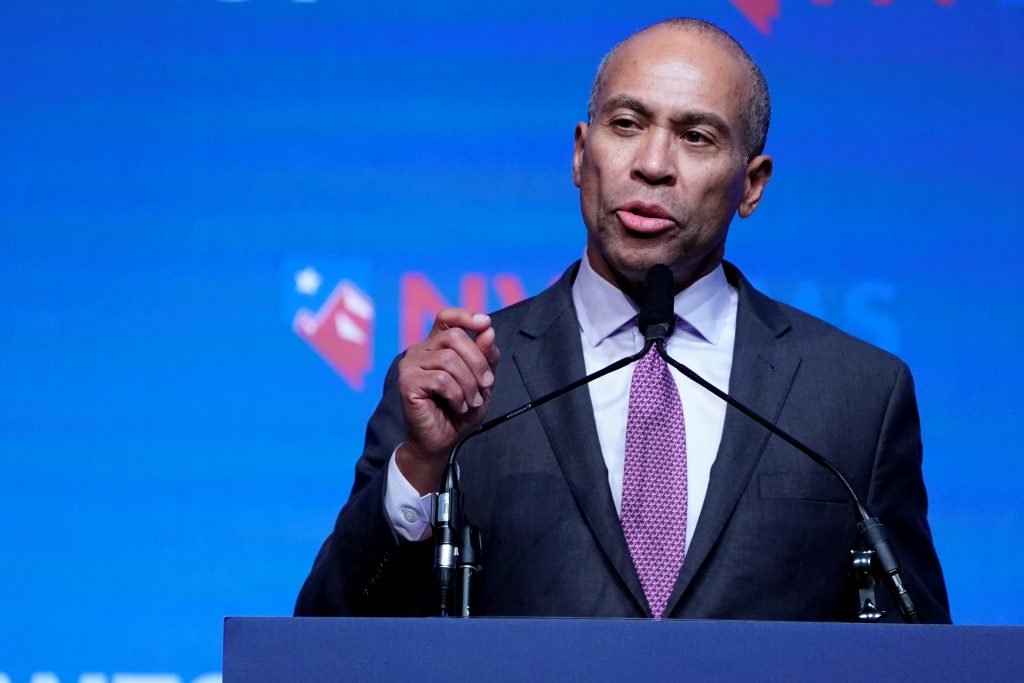
Deval Patrick may face an uphill battle in his quest to
secure the support of the “still waking,” but it
would be a shame if, as suggested in a recent Wall Street Journal report, his candidacy
was derailed by his board service on several health companies. This experience
with the business of healthcare represents a valuable window, just the sort
of expertise we should
actively pursue, not sanctimoniously condemn.
America spends nearly 20 percent of our GDP on healthcare; there is growing resentment over rising costs, a complex challenge that has been dumbed down to the bumper sticker slogan, “patients over profits” – never mind that, inconveniently, it’s often the pursuit of profit that has delivered so much innovation for patients (thank you, capitalism).

Unfortunately, some cling desperately to a purity
hierarchy that would be amusing if it wasn’t so harmful, a scheme that
sanctifies academic investigators that are not “contaminated” by working with
companies, and routinely besmirches anyone vulgar enough to engage with
industry. (The late Tom Stossel and I coined
the term “pharmascolds” in the Weekly Standard in 2008,
and further developed the concept in
the Wall Street Journal in 2009.)
The irony, of course, is that working with industry is what generally gets promising ideas actualized into new products and approaches that work at scale. Investigators seeking to accelerate the translation of promising ideas will often turn to existing companies — or start their own. Companies, for their part, typically seek out the smartest academic experts to inform the high-stakes decisions they must make during product development; it’s no surprise that some of the most talented university investigators — UCSF’s Dr. Atul Butte comes to mind — wear their industry disclosures as a badge of honor. But this still is more the exception than the rule.
When Dr. Scott Gottlieb was first under consideration to head the FDA, he was critiqued because the bulk of his experience was on the business side of healthcare, rather than as an academic publishing in academic journals. As I wrote in the Washington Post at the time:
“For many in the academy, the true work of drug discovery is the journey from scientific inspiration to academic publication — a perspective that fails to appreciate the extraordinary effort required to go from the tenuous conclusion of a scientific journal article to a robust commercial product. This seems a bit like relying on a well-read virgin for advice on sex. There are some things you learn only by doing, and developing drugs is one of them.”
Or as health policy expert and AEI resident
scholar James Capretta recently told Bill Kristol:
“How to take what’s being learned about some basic scientific understanding of how the body works, and then translating it into a pill or something that you can administer to a patient – that’s no small thing. It takes a lot of work to get from one to the other. And that’s where our commercial base really excels…”

Gottlieb — now an AEI Resident Fellow — turned out to be a phenomenally effective leader of the agency, and a key reason was his sophisticated understanding of the intricacies of the industry he was regulating. Similarly, I have been enthusiastic about the current Deputy Director of the FDA, Dr. Amy Abernethy, an academic oncologist from Duke and a key member of the leadership team of the health tech company, Flatiron, acquired by Roche for $2.1B in 2018; her experience at the cutting edge of technology and healthcare positions her perfectly to help the FDA navigate this vitally important interface.
And now, consider Deval Patrick. As the Wall
Street Journal points out, Patrick has
served on the boards of American Well, a private telemedicine company, and
Global Blood Therapeutics, a public biotech company testing a drug for sickle
cell disease, the first disease to be defined
molecularly (by Linus Pauling, in 1949), yet unfortunately,
still in need of profoundly improved treatments. According to the Center for Disease Control, sickle
cell disease afflicts approximately 1 in 100,000 Americans, but “occurs about 1
out of every 365 Black or African-American births.”
While the Journal ominously
warns that Patrick’s “ties to health-care and drug companies could make him a
punching bag for Democratic candidates who support single-payer health care and
criticize the pharmaceutical industry,” I would argue Patrick’s experiences
with companies trying to innovate healthcare delivery (via telemedicine) and
therapeutics (via new medicines) provide him with invaluable insights into the
challenges faced by innovators in each of these difficult spaces. Our
healthcare system is notoriously difficult to change, and new medicines are so
difficult to develop that pharma executives often use the term “miracle” to
describe the rare product that manages to run the experimental and regulatory
gauntlet and successfully earn FDA approval.
Deval Patrick may not be the One the Democrats are waiting for; but he should be thoughtfully evaluated based on the quality of his ideas, not pre-emptively dismissed because of his associations with American companies striving to bring biomedical innovations to patients.
Dr. Shaywitz, a
physician-scientist, is a venture capitalist in Silicon Valley associated with
a pharmaceutical company, and writes the “Astounding
Healthtech” column for The Timmerman Report. The views expressed are
entirely his own.
The post Dems still waking to private sector medical innovation appeared first on American Enterprise Institute – AEI.
